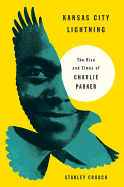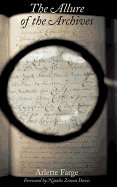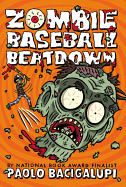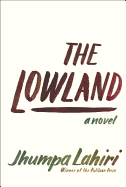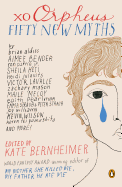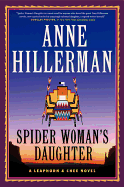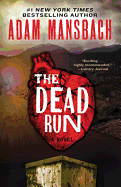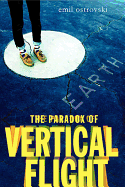Tuesday, October 1, 2013
Pongo and Perdita were convincing in 101 Dalmatians when they relied on the barking chain to spread the word that their puppies were missing. So it's not so hard to believe that other dogs in literature might lend a paw now and then.
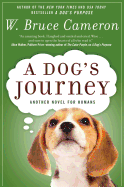 Enzo has a spot on the staff pick display at Book Passage, in San Francisco, and while he's taught us all about The Art of Racing in the Rain, he's helped some pals gain traction in sales, too. His "staff recommends" card for A Dog's Journey by W. Bruce Cameron states: "I want you to read this book about my pals Buddy, Molly, Max and more. It's the best book on dog devotion since The Art of Racing in the Rain. Enzo." Sales of both books are steady. (No doubt Enzo is looking forward to Cameron's next book, The Dogs of Christmas, due October 15.)
Enzo has a spot on the staff pick display at Book Passage, in San Francisco, and while he's taught us all about The Art of Racing in the Rain, he's helped some pals gain traction in sales, too. His "staff recommends" card for A Dog's Journey by W. Bruce Cameron states: "I want you to read this book about my pals Buddy, Molly, Max and more. It's the best book on dog devotion since The Art of Racing in the Rain. Enzo." Sales of both books are steady. (No doubt Enzo is looking forward to Cameron's next book, The Dogs of Christmas, due October 15.)
A certified assistance dog, Pransky the labradoodle, star of A Dog Walks into a Nursing Home, inspired one yellow lab in California to embark on a similar career. When Byron's human read Sue Halpern's memoir about their training and therapy dog work, he immediately signed up for a Canine Good Citizen course. At just 17 months old, Byron passed on his first try, and plans to pursue graduate work to become a therapy dog. And while Pransky and Halpern did not tour to California, Halpern's husband, Bill McKibben, author of the newly released Oil and Honey, graciously signed the book, "from Pransky's dad." --Cheryl Krocker McKeon, bookseller, Book Passage, San Francisco
The Lowland
by Jhumpa Lahiri
In her second novel, The Lowland, Jhumpa Lahiri builds on her previous themes of the Indian-American immigrant experience with her trademark clear, gorgeous language. The story spans 70 years, opening with two brothers in Calcutta. Subhash, the older boy, is cautious and reserved; the younger, Udayan, is the charming risk-taker. Subhash goes to the United States for university, while Udayan makes a love match to marry Gauri and becomes a political revolutionary. Later, when Udayan sacrifices everything for his beliefs, Subhash returns to India, stepping into Udayan's life try to heal the wounds he left behind, and eventually brings a pregnant Gauri back to the U.S. with him.
With a story spanning generations and continents, The Lowland is epic in scope, but, through sheer technical wizardry, Lahiri also creates a story shimmering with the interplay of time and memory. The intimate, close-up look at the characters in India, where small gestures reveal everything, gradually gives way to a wide-angled and panoramic view, as though the narrative camera zooms back to encompass the vast American backdrop while moving through time. In the final two chapters, the characters are shown at such a remove they are not identified, but we know them so well now names are unnecessary.
If this sleight of hand sometimes comes at the expense of an immediate emotional connection to Lahiri's characters, The Lowland is nevertheless a gorgeous novel, unexpected and ambitious, full of hope and longing--a novel to savor. --Jeanette Zwart, freelance writer and reviewer
Discover: A beautiful, ambitious, complex novel about an Indian-American family finding its way to acceptance and love despite its history and secrets.
Local Souls
by Allan Gurganus
The first thing you see when you begin Local Souls is a rough map of Falls, N.C., the setting for Allan Gurganus's thoroughly enjoyable collection of three novellas. Start top left, at Falls High: In "Fear Not," our narrator is watching his godson perform in the school musical when a very un-Falls-like couple sits next to him--handsome, confident, "lion-kingly." He must find out all about them. A year later, the resulting tale includes a decapitated head and a 14-year-old girl who gets pregnant by the owner of the motorboat that killed her father and gives up the baby.
For "Saints Have Mothers," we move to the bottom of the map to read about the Mulray family. Caitlin's proud mom tells us she's "one amazing little girl" who gives her mother's shoes to the poor and her school lunches to hungry kids. As a teenager, she goes to Africa, then her mother receives a call: Caitlin is missing, believed dead. What Gurganus does with this very twisting tale about a mother's love echoes the literary revelations of the great interior monologue poets.
Next, in "Decoy," we go to Riverside, the best neighborhood, and Doc Roper's house. Doc's retiring, but something much bigger is coming to Falls--the "smaller the town, the bigger the event looms." This last novella is a powerful inquiry into fathers and carved ducks.
Here are finely rendered portraits--and, behind the faces, fascinating stories. Listen to the voices, so pitch perfect, the words, oh so readable. And Falls, home to the fallen; it's on the map. Come visit. --Tom Lavoie, former publisher
Discover: Another outstanding glimpse of Falls, N.C.--Allan Gurganus's own Winesburg, Ohio--and its souls, beautifully rendered in a sweet Southern evening's prose.
xo Orpheus: Fifty New Myths
by Kate Bernheimer, editor
xo Orpheus is an expansive collection of reimagined tales that achieves the rare distinction of being both hugely entertaining and rekindling the sense of wonder in encountering myth and fairy tales for the first time. As she did in My Mother She Killed, My Father He Ate Me, Kate Bernheimer shows impeccable taste and creative vision in the stories she has chosen and the artful and cohesive way she arranges them.
The stories take on every conceivable strand of world myth, with retellings of Greek, Norse, Indian and Native American tales. There are creative and clever cover versions where one can easily intuit the original inspiration; other stories offer the merest echo of the previous tale before meandering off wonderfully in surprising and engaging directions.
The level of craft never drops. To single out any specific stories is almost criminal, but the chilling "Coyote Myths" by Shane Jones combines domestic anxiety and mythic resonance to lasting effect. Max Gladstone's "Drona's Death" takes a minor event from the Mahabharata and delivers a timeless polemic on the cost of war.
xo Orpheus is a beautifully assembled collection. Bernheimer and her cohorts have achieved something that is increasingly rare these days; in breathing new life into these old tales they've also brought a little bit of enchantment to our hectic and increasingly myth-empty world. --Donald Powell, freelance writer
Discover: A mesmerizing collection of 50 retold myths capable of rekindling wonder.
Levels of Life
by Julian Barnes
After winning the Man Booker Prize for The Sense of an Ending, Julian Barnes is back with the elegantly constructed Levels of Life, a deeply affecting meditation on grief at his wife's death.
"You put together two things that have not been put together before," Barnes writes in "The Sin of Height," the first of three connected sections. "And the world is changed." A brief history of 19th-century Anglo-French ballooning, and a pioneer of aerial photography, Gaspard-Félix Tournachon, are combined as metaphors for a new freedom as heady as first love--and as subject to a precipitate crash.
Two other balloon enthusiasts, Colonel Fred Burnaby of the Royal Horse Guards and the actress Sarah Bernhardt, are featured in "On the Level," a fictionalized account of a putative affair in which Sarah breaks Burnaby's heart. Then, in "The Loss of Depth," we go into the recesses of Barnes's grief. He and his wife had been traveling; they came home; she saw her doctor and was diagnosed with a brain tumor. Thirty-seven days later, she was dead. The deep grief Barnes felt--and still feels--is meticulously rendered. But "we did not make the clouds come in the first place, and have no power to disperse them," he concludes. "All that has happened is that from somewhere--or nowhere--an unexpected breeze has sprung up and we are in movement again." He will go on, diminished, saddened immensely by loss, but knowing that some good things remain. Chief among them must be his ability to render the most profound feelings in exquisite prose. --Valerie Ryan, Cannon Beach Book Company, Ore.
Discover: Julian Barnes blends fact and fiction in a deeply moving three-part meditation on the grief following the death of his wife.
Mystery & Thriller
Spider Woman's Daughter
by Anne Hillerman
When Tony Hillerman died in 2008, it was a sad day for fans of Lt. Joe Leaphorn and Sgt. Jim Chee of the Navajo Tribal Police. Thankfully, his daughter Anne has taken up the torch with Spider Woman's Daughter, offering her take on these memorable and beloved characters.
She doesn't waste any time shocking us. In the opening pages, Leaphorn is shot in the head in a parking lot outside a restaurant. Bernie Chee, Jim's wife (last seen in The Shape Shifter), also a member of the Tribal Police, rushes to help. Leaphorn is taken away in an ambulance and the story begins. As a distraught witness, Bernie's "officially" off the case, but she won't stop until she finds the shooter.
Bernie is the focus of the story, a major departure from Tony's focus on Leaphorn and then, later in the series, Jim Chee. Early leads concerning the shooter's car don't pan out. Maybe the mystery has to do with Louisa, Leaphorn's close friend, who's missing; they had had a fight. The trail then leads to a museum in Santa Fe and some insurance investigations Leaphorn was doing for it; his report is missing, too.
Although it must be daunting to take over a popular series written by a parent, Anne Hillerman fulfills the task splendidly. She grew up with her father's books and characters and loves New Mexico's natural beauty as much as he did (as demonstrated by her 2009 coffee-table book Tony Hillerman's Landscape: On the Road with Chee and Leaphorn). The mystery in Spider Woman's Daughter is fast-paced, intricate and enveloped by that great Southwestern landscape. Hopefully we'll have more installments to look forward to. --Tom Lavoie, former publisher
Discover: Anne Hillerman's first work of fiction--a tale of revenge and greed--brings a new twist to her father's popular Leaphorn & Chee mystery series.
The Dead Run
by Adam Mansbach
The Mexican-American borderlands of Adam Mansbach's The Dead Run are crawling with crooked cops, religious fanatics, drug runners and rogue motorcycle gangs, but the story isn't driven by drug cartel atrocities so much as the Aztec god Tezcatlipoca's plan to reclaim the continent from the Christian invaders. The novel kicks off with an eerie meeting between border smuggler Jesse Galvan and El Cucuy, a much feared and mysterious 500-year-old Aztec priest, in the secret tunnels underneath Ojos Negros Prison. Cucuy springs Galvan to shepherd a package across the border to Cucuy's son Aaron Seth, who runs a sham religious commune on the Texas side of the river.
Not until too late does Galvan look inside and find the beating heart of a virgin. Aztec prophecy maintains the high priest can pass on his powers only to a son who ingests the living heart of a pure woman--and if Galvan doesn't deliver, Cucuy's son will kill his estranged daughter, Sherry, and consume her heart instead. Galvan is a crude but big-hearted hero who doesn't understand the bizarre Aztec mythology and has only a vague idea of what happens "if this Aaron Seth peckerwood eats his Happy Meal and turns into a god," but he knows evil when he sees it and loves his daughter--and that's enough.
The Dead Run is irreverent and entertaining, a wild high-speed ride across centuries and cultures, through the mystical supernatural and the very real "missing women of Juarez" that, eventually, comes to an ambivalent happy ending. --Bruce Jacobs, founding partner, Watermark Books & Cafe, Wichita, Kan.
Discover: Mansbach's second novel of 2013 (after Rage Is Back) is a high-speed thriller that draws upon border noir and Aztec mythology.
Food & Wine
Monday Morning Cooking Club: The Food, the Stories, the Sisterhood
by the Monday Morning Cooking Club
While home cooks will be seduced initially by its delectable and easy-to-follow recipes, they'll declare fidelity to Monday Morning Cooking Club because of its stories.
Five years after a group of Jewish women in Sydney, Australia, began to meet weekly to cook and share recipes and traditions, six of them picked their favorites for this cookbook of more than 100 dishes (made accessible to Americans with conversions and a glossary of ingredients and terms). More than an "Australian" collection, the "sisterhood" represents a global cuisine with contributions from 60 cooks.
The migrations of the recipes' authors ranged from Ukraine, Germany and Austria to Burma, South Africa and England; each recipe includes a brief heartfelt tale of its origin. Stories of the Jewish diaspora pay homage to the recipes' creators, whose travels resulted in multicultural cuisine: one contributor has a Polish mother and a Hungarian father, who met in Australia and merged their traditions. A former Israeli soldier tells of easing tensions when she was guarding the border with Jordan by asking Palestinian women advice on making majadara, a lentil-rice dish.
Simple food rules the Monday Morning choices. Directions are clear and unfamiliar terms defined, sometimes with more stories. (Basil and Rocket Oil Tomato Soup? Oh, "rocket" is arugula! Schmaltz? "In cooking, it's chicken fat; on your body, it's too much schmaltz in your cooking.")
Lush photographs illustrate each recipe, and pictures of the six contributors suggest a family album. With recipes like "Fanny's Chicken Soup" and "Mum's Crumb Cookies," you'll feel like part of the Cooking Club, too. --Cheryl Krocker McKeon, bookseller, Book Passage, San Francisco
Discover: A cookbook by Australian Jewish women drawn from immigrants' traditions and recipes.
Biography & Memoir
Kansas City Lightning: The Rise and Times of Charlie Parker
by Stanley Crouch
The controversial critic Stanley Crouch has worked for 30 years to complete his two-volume biography of saxophonist Charlie "Bird" Parker. The wait is understandable considering Crouch's output during this time: a dozen books, poetry, jazz criticism, television spots, NPR commentary and New York Daily News columns. In Kansas City Lightning, the first volume of his epic biography, he gathers interviews, news stories, early recordings and period photos and spins them with a novelist's touch into the story of Parker's journey from cruising the jazz clubs of "Boss Tom" Pendergast's wide-open 1930s Kansas City to 1940 Harlem, trying to jam his way into a full-time gig at Clark Monroe's Uptown House. When this volume ends, Parker is only 20 years old and already a father, a heroin addict and the genius who caused his fellow Midwestern musicians to marvel at his sounds, "devoid of vibrato, notes flying thick as buckshot, slapping chords this way and that, rambling quicker with more different kinds of rhythms than they'd ever heard from a saxophone."
The Charlie Parker of Kansas City Lightning is "lean as a telephone wire" and overwhelmed by his mother, Parkey, who raised him in a tough neighborhood. He doesn't care much for school; when it comes to learning to play like Roy Eldridge on trumpet or Buster Smith on alto, he schools himself. While Crouch spends considerable time describing Parker's young romance with Rebecca Ruffin and their marriage, parenthood and separation, the real romance of his early life came on the streets, where Kansas City provided plenty of dope, women and booze to musicians "who appeared free and drifting on a cloud of glamour, gifted with the ability to shape moods with sound." --Bruce Jacobs, founding partner, Watermark Books & Cafe, Wichita, Kan.
Discover: This first volume in the epic biography of Charlie Parker showcases Stanley Crouch's encyclopedic knowledge of jazz history and effusive prose.
History
The Allure of the Archives
by Arlette Farge, transl. by Thomas Scott-Railton
Arlette Farge is known for her ability to evoke the everyday world of 18th-century France. In The Allure of the Archives, originally published in 1989 and now translated for the first time into English, she pulls the curtain aside and shares what it is like to work with the raw materials on which her writing is based.
The Allure of the Archives elegantly combines elements of memoir and how-to-manual with musings on the craft of history writing. Farge moves effortlessly from the physical realities of working in the archives ("Whether it's summer or winter, you freeze") to the excitement of discovering a 200-year-old pouch of seeds attached to a letter as evidence to the philosophical challenges of constructing meaning from recorded fragments. She shares the feeling of dust-stained fingers, the exhaustion of copying and the frustration of deciphering illegible texts. Abstract questions of historiography and practical discussions of how to organize archival research are lightened by often humorous vignettes of Farge's experiences working in the judicial Archives of the Bastille--from plotting to get the best seat in the reading room to navigating French bureaucratic mazes.
In less talented hands, this material would be no more than an academic work, interesting only to other academics. In fact, The Allure of the Archives is lyrical, suspenseful and humorous in turn. Farge has created a fascinating account of how historians work that will appeal to scholars and history buffs alike. --Pamela Toler, blogging at History in the Margins
Discover: A classic intellectual memoir, finally translated into English, elegantly re-creates the thrills and (literal) chills of a historian's archival treasure hunts.
Science
Countdown: Our Last, Best Hope for a Future on Earth?
by Alan Weisman
The terrifying scenarios of Alan Weisman's Countdown may resemble science fiction, but they are the products of extensive scientific research. In his follow-up to The World Without Us, Weisman travels the world to examine different cultures, attempting to answer four difficult yet vital questions: How many people can the planet hold? Is there an acceptable, nonviolent way to reduce population growth worldwide? What parts of the ecosystem can humans absolutely not live without? And is there an economic design that can prosper without depending on constant growth?
Human societies encourage reproduction in order to outnumber their enemies and prepare for possible wars. In order to make room for their expanding numbers, they force the extinction of other species and destruction of ecological systems, poisoning the land used to grow food. Humans must take action to reverse this dangerous game of dominoes before nature does so through famine and disease.
Weisman's discussion considers both the causes of overpopulation and the efforts being made to counter its ill effects. The science and data may at times be overwhelming for the average reader, but Weisman's anecdotes and explanations balance out the scholarship and draw a clear picture for everyone.
Countdown asks the hard questions; readers will be left pondering the probability of whether those questions can be answered. More importantly, they will be cognizant of how their own actions will shape the not-so-distant future. --Jen Forbus of Jen's Book Thoughts
Discover: From Uganda to Costa Rica, Pakistan to the U.S., one journalist looks at our growing population to determine just how much more humanity the world can accommodate.
Children's & Young Adult
Zombie Baseball Beatdown
by Paolo Bacigalupi
Paolo Bacigalupi (Ship Breaker) weaves into this absurdist horror-comedy some hard-hitting explorations of political and ethical issues. Characters encounter racism, live in terror of the department of Immigrations and Customs Enforcement (ICE), and seek to expose the shady practices of the meat industry.
Best friends Rabi (who narrates), Miguel and Joe live in a small town that is home to Milrow Meat Solutions, a giant meatpacking plant. Its horrendous stink invades the boys' batting practice (Rabi describes it as "Ashy-barfy-rotten-meat-dead-cow-manure-sewer nasty"). Before long, the friends are fighting zombie humans, followed by zombie cows. Those who run Milrow have pumped so many chemicals into their livestock that the cows can no longer die. Ever since Miguel's father (a former plant employee) posted some footage from inside the factory on YouTube, they've targeted his undocumented family for deportation. Rabi is embarrassed by a mother who cheers at his baseball games wearing "a bright yellow sari... and a red bindi in the middle of her brown forehead." Blond, all-American Joe's presence in the novel raises a striking contrast: while Rabi and Miguel are highly attuned to how the world perceives them, Joe has the luxury of not having to think about it.
Readers will hope this is a first in a new genre mashup. Who expects a book in which the author devotes page after page to describing the behavior of zombie cows to introduce such rich fodder for discussion? Kids will devour this like a zombie would a plate of fresh brains. --Allie Jane Bruce, children's librarian, Bank Street College of Education
Discover: A National Book Award finalist's absurdist horror-comedy weaves in hard-hitting explorations of political and ethical issues.
The Paradox of Vertical Flight
by Emil Ostrovski
Emil Ostrovski's smart and funny debut novel begins with a recipe for disaster for narrator Jack, and will likely to appeal to fans of Sherman Alexie and Andrew Smith.
Jack wakes up on his 18th birthday to suicidal thoughts and a call from his ex-girlfriend telling him she's about to give birth to their son. Jess has planned to give the baby up for adoption, but when Jack holds the son he once suggested Jess abort, he realizes he doesn't want to say goodbye. At least not without one adventure to his dying grandmother's house--so he kidnaps his newborn baby. Jack names his son Socrates, and has hilarious imaginary conversations with him about romanticism, mortality and the limitations of the universe.
Sure, there are FBI chases, humorously neglectful baby handling and pop-culture references galore, but the heart of this novel is Jack finding meaning in his own little corner of the universe after he considered ending his life. Baby Socrates is Jack's game changer, but the assists go to his friend Tommy, who joined the military in pursuit of excitement, and Jess, who may throw chairs at Jack but still cares for him deeply.
This novel will easily grip readers, thanks to its neurotic hero, and have them eagerly awaiting Ostrovski's follow-up. --Adam Silvera, reviewer and children's bookseller
Discover: A witty debut about an 18-year-old boy who kidnaps his newborn baby for a memorable road trip.


